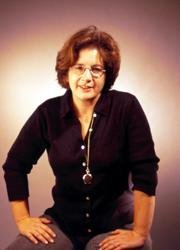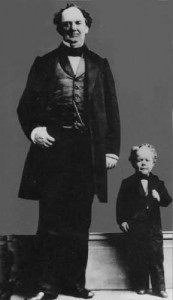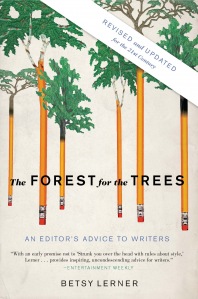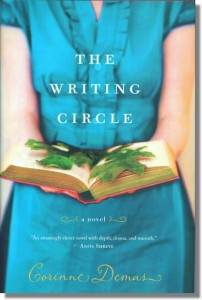Publishing Talks: David Wilk Interviews Betsy Lerner
December 9, 2010 by David
Filed under Publishing History, PublishingTalks, The Future
 In this series of interviews, called Publishing Talks, I have been talking to book industry professionals and other smart people about the future of publishing, books, and culture. This is a period of disruption and change for all media businesses. We must wonder now, how will publishing evolve as our culture is affected by technology, climate change, population density, and the ebb and flow of civilization and economics?
In this series of interviews, called Publishing Talks, I have been talking to book industry professionals and other smart people about the future of publishing, books, and culture. This is a period of disruption and change for all media businesses. We must wonder now, how will publishing evolve as our culture is affected by technology, climate change, population density, and the ebb and flow of civilization and economics?
I hope these Publishing Talks conversations will help us understand the outlines of what is happening, and how we might ourselves interact with and influence the future of publishing as it unfolds.
These interviews give people in and around the book business a chance to talk openly about ideas and concerns that are often only talked about “around the water cooler,” at industry conventions and events, and in emails between friends and they give people inside and outside the book industry a chance to hear first hand some of the most interesting and challenging thoughts, ideas and concepts being discussed by people in the book business.
A few weeks ago I read a piece by Betsy Lerner in Publishing Perspectives, the excellent online newsletter about the publishing business edited by Ed Nawotka. It was called “Should I Tweet” and was adapted from the new updated edition of Betsy’s book “The Forest for the Trees: An Editor’s Advice for Writers.” It’s a great piece, that says some important things about marketing and publishing aimed at writers (but good for everyone else in publishing to read too), and instantly made me want to talk to her (and buy her book). This little quote from near the end of the essay really grabbed me:
“I’m not saying that everyone can or should be creating a personal literary dynasty, but it’s essential for authors to be thinking about how to market themselves. Always has been. Sometimes they cry, “but I’m no good at marketing,” or “Isn’t that the publisher’s job?” I think publishers should help authors think about what they can do early on in the process, whether it’s creating a blog, developing mailing lists, or getting speaking engagements lined up. If you’re lucky enough to be signed up without a platform, start working on one! Marketing and selling books is not for the faint of heart. Whitman knew that. Palahniuk knows it. Jay Conrad Levinson preaches it.
But no one knew it better than P.T. Barnum, “Without promotion something terrible happens,” he said. “Nothing!”
Betsy is herself of course, a terrific writer, as well as being a successful agent. I admire her blog, where she extends the work she did in The Forest for the Trees. She is funny and smart, entertaining and instructive, and obviously talented. Her opinions are definitely worth knowing, and her advice for writers is always great stuff. She’s a poet, and was for many years a successful commercial editor, and then became an agent with a great list of client writers; she is a partner at the Dunow, Carlson and Lerner Literary Agency. She wrote another book called Food and Loathing about her issues with eating and depression. She received an MFA from Columbia University in Poetry and was the recipient of a Thomas Wolfe Poetry Prize, an Academy of American Poets Poetry Prize, and was one of PEN’s Emerging Writers in 1987. She also received the Tony Godwin Publishing Prize for Editors Under 35. And Betsy also gives talks on every aspect of the publishing process from her perspective as a writer, former editor and agent.
We had a great conversation about books, publishing and marketing, during which I learned a few things and gained some valuable insights. A key point she makes is how important it is for writers to understand their role in the publishing process. While we are certainly in a period of heightened difficulties, the challenges writers (and publishers) face today are really not that different from what they have always been. The specific tools we use may change, but the principles of marketing books remain the same. Writers are in fact entrepreneurs, and not just “writers” and they must always be engaged in the public process of publishing, in a measure most likely equal to their own actual abilities. And she also reminds us of the central matter: that the quality of the work must always be the focus of everything. Everything else is secondary.
After talking to Betsy, I’m now looking forward to reading The Forest for the Trees – and sooner rather than later.
Podcast: Play in new window | Download
Corinne Demas: The Writing Circle
November 8, 2010 by David
Filed under Fiction, WritersCast
 978-1401341145 – Hardcover – $23.99 (e-book edition available $11.99)
978-1401341145 – Hardcover – $23.99 (e-book edition available $11.99)
In choosing books for Writerscast, I have been trying to read as many books as possible from different styles, genres and viewpoints, to make an eclectic and interesting selection both for myself and for an audience of listeners. I suspect that if it had not been for that effort, I simply would never have discovered Corinne Demas and her new novel The Writing Circle.
It’s not so much that this novel is outside the scope of my literary tastes, as in fact, I really like well written novels that explore character and whose narrative is subtle and skillfully enough handled that I can’t feel ahead what is going to happen. I suppose in one way that just means I like to lose myself in a novel and not feel like I can feel the wheels and levers turning as I follow on. But I just may not have picked this book off of a book display in a bookstore to read, maybe because it’s a book about writers and that might normally seem sort of self reflexive to me. Thus the lesson, if there is one, is to remain open to surprises and to not make judgments about a book just from it’s title. A funny idea indeed.
I definitely enjoyed reading this novel quite a bit. Corinne Demas is a very fine writer. I think the word that comes to mind for me is “deft.” There are a number of characters here, all of whom are important, and the way the story is told reminded me of an ever tightening spiral, as we start from the seeming mundane outside and move ever closer into the lives of these people around a series of events that provides the structure of the book. This is a very well put together novel. After reading it, I wanted to rush out and talk to Corinne Demas about the book and how she imagined it, and all the characters (guessing of course that she had been in writing circles herself).
I always feel that when I am talking to a novelist it’s critical to balance between talking engagingly about a book I just read and that I feel excited about, and not giving away too much to anyone who might be listening and themselves eventually read the same book. That certainly applied in this talk, as we danced around the story outline while talking in depth about the book’s structure and her involvement with these very compelling characters. That was fun too and I hope listeners will enjoy that balancing act.
Corinne Demas is a talented and accomplished writer – she’s written adult novels, short stories, children’s picture books and chapter books, a play and she writes poetry as well. In addition, she teaches full time at Mt. Holyoke, which we also talked about a bit in this conversation. 
Podcast: Play in new window | Download
Lev Raphael – My Germany: A Jewish Writer Returns to the World his Parents Escaped
July 19, 2009 by David
Filed under Non-Fiction
 978-0299231507 – Hardcover
978-0299231507 – Hardcover
University of Wisconsin Press $26.95
Lev Raphael grew up loathing everything German. A son of Holocaust survivors, haunted by his parents’ suffering and traumatic losses under Nazi rule, he was certain that Germany was one place in the world he would never visit. Those feelings shaped his Jewish and gay identity, his life, and his career. In “My Germany.” Raphael explores many layers of his personal life, including his visits to Germany, his complex relationships with his parents and his inner self. My interview with this interesting and engaging writer ranges across a variety of subjects, including the author’s writing methods, a discussion about this new book and his life as a writer, the nature of memoir, memory, and the discovery of self.
Podcast: Play in new window | Download
